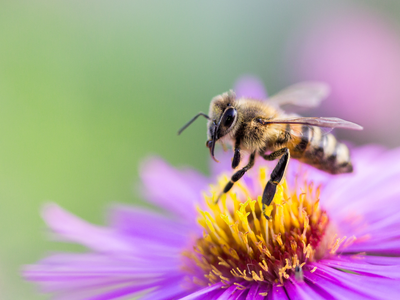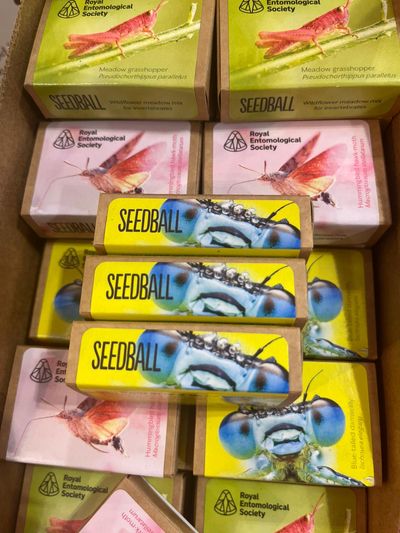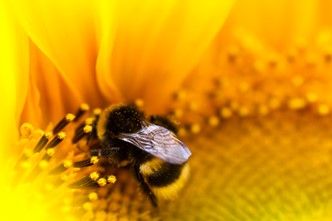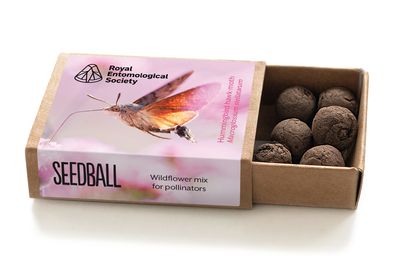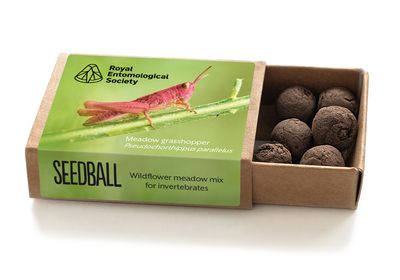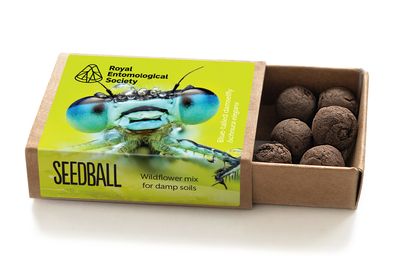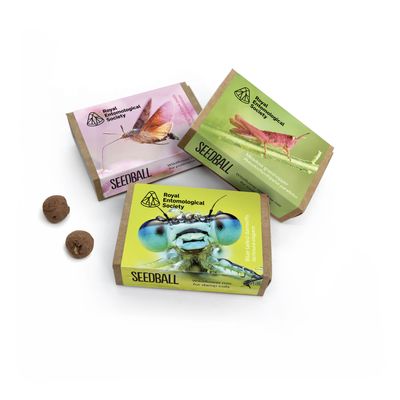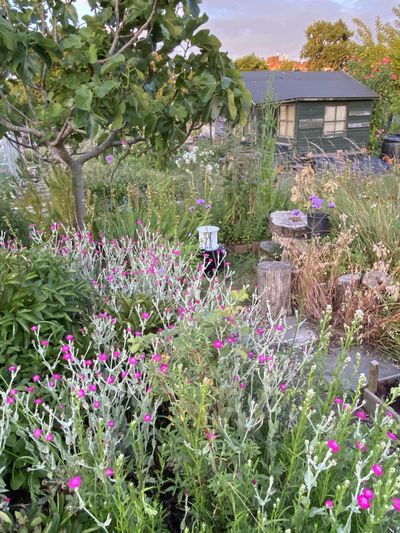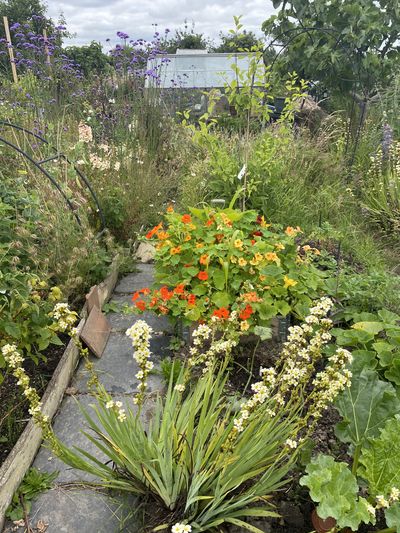Insect Week: The perfect time to encourage ‘the little things that run the world’ to your patch
Published:
Read Time: 3 mins
Insect Week runs from the 24th to the 30th June, and is the perfect opportunity to celebrate the little things that run the world! This year, disruptive wildflower brand, Seedball, is encouraging the public to do more in the garden to help these fascinating critters thrive.
Dr Emily Lambert and Dr Ana Attlee, conservation scientists and founders of Seedball said: “Insects, often overlooked and underestimated, wield immense influence over our planet’s ecosystems. Their significance cannot be overstated, as they form the bedrock of biodiversity and contribute substantially to the functioning of our world. These creatures play a vital role, and we must do more to help them thrive. Thankfully lending a helping hand to insects is easy to do at home. From planting beautiful blooms, to creating cosy shelters, even the smallest steps can make a big difference. Below are our top three tips on how you can create a wildlife paradise and help bugs flourish!
Plant a plethora of flowers:
The simplest and prettiest way to make your patch a pollinator paradise is to grow an array of flowers and plants. By choosing blooms that flower at different times of the year, you can create a constant source of food in the garden throughout the seasons - providing habitats way beyond Insect Week! Late-flowering crocus species make wonderful sources of nectar through the autumn and winter, spring-flowering hellebore and hebe are great for early-season colour and pollen. Choosing native species of flowers is also a beneficial choice for bugs. This is because these plants are well-adapted to our local climate, making them hardier and more resistant to harsh conditions and weather changes. Native wildflowers like forget-Me-Not, oxeye daisy and campion not only offer ample food for pollinators, but also fill the garden with gentle waves of beautiful colour!
Provide shelter:
Resist the urge to keep things neat and tidy, in the garden! Insects rely on debris like logs, twigs, dead leaves, and compost for shelter. But as the summer approaches, many people tidy up the garden and removing these valuable homes for wildlife. By leaving a small area of the garden dedicated to insects and wildlife, such as a corner filled with twigs, leaves, and garden debris, you can help minibeasts thrive. Insect houses are also available for a modern alternative, but natural materials like leaves, sticks and compost are preferred.
Include night-scented blooms
Did you know that moths are more efficient at pollinating than all of the day-flying pollinators? A recent study by Butterfly Conservation and the University of Sussex found that although bees and butterflies have more time throughout the day to do this vital work, moths were actually much faster at pollinating. By planting evening-scented greenery, you can help marvellous moths in their quest to pollinate and repopulate. Some night-scented favourites include evening primrose, jasmine, sweet rocket, and honeysuckle. Seedball’s bat mix is perfectly formulated to attract night flying pollinators.
To make planting for insects easy, Seedball has teamed up with the Royal Entomological Society to launch three new seed ball matchboxes. The collection features three boxes, each containing a different seed mix aimed at encouraging three invertebrate groups – a Meadow Mix, a Pollinators Mix and a unique Damp Soil Mix.
Seedball will also donate 90p for every set sold to the Royal Entomological Society to help support its vital research and conservation efforts.
To find out more about the new Royal Entomological Society matchboxes, and to explore Seedball’s other wildflower seed balls, visit the website at www.seedball.co.uk
Ends
Editors notes
Seedball was founded by two conservation scientists wanting to boost biodiversity and help wildlife.
Seedball Ltd is an innovative organisation on a mission to help increase the abundance of British wildflowers and the wildlife that depends upon them.
Owned by Project Maya – a non-profit enterprise - Seedball manufactures wildflower seed balls using a unique innovation of wildflower seeds mixed with clay, peat-free compost and chilli powder to naturally protect seeds from predators. Its products are sold in over 500 stores in the UK, including Kew Gardens, The Woodland Trust and Blue Diamond Garden Centres, as well as online retailers such as Crocus and Marie Curie. Each year, Seedball also donates products to hundreds of schools and community groups to help support their nature projects.

